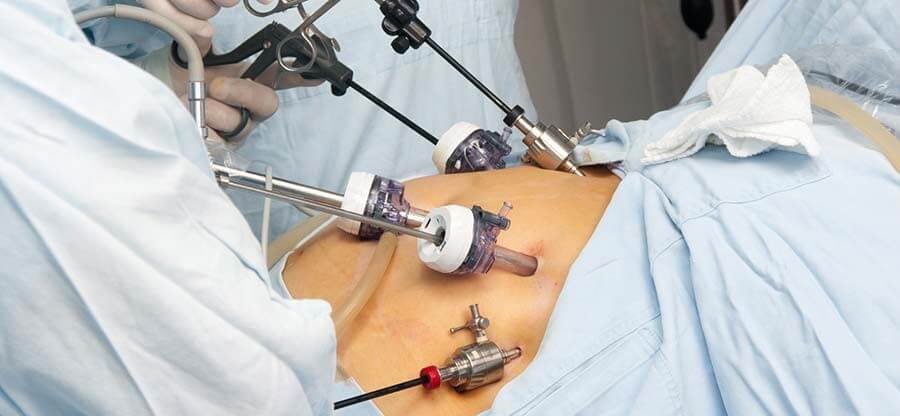Colorectal Cancer
Around 10% of all cancer cases worldwide are colorectal cancer cases, making it the third most prevalent cancer overall and the second-biggest cause of cancer-related deaths globally.
It primarily affects elderly persons, with most cases affecting those who are 50 years old or older.
Understanding Colorectal Cancer
Location
The tissues of the colon and/or rectum are where colorectal cancer develops. The lower gastrointestinal system contains both the colon and the rectum. They come together to form the large bowel. The colon stores waste while absorbing food and water. The rectum is in charge of eliminating bodily waste.
What is colorectal cancer, and how does it develop?
Any tumor is created when cells that line the colon or rectum begin to mutate and grow uncontrollably. The same is the case with Colorectal cancer where polyps ( a pendulous growth within the colon), enlarge and become cancerous.
What are the Major Factors Responsible for Colon Cancer?
One of the major factors in the risk of colorectal cancer is obesity, along with food, smoking, and genetics.
- Age (mostly after 50)
- Ethnicity and race (some ethnic groups are more prone to colorectal cancer)
- Hereditary (Family History)
- Colon polyps in the past, particularly if they were large, frequent, or demonstrated certain aberrant noncancerous cells (dysplasia)
- Previous diagnosis of colorectal cancer
- Inflammatory bowel disease (IBD), such as Crohn's disease or ulcerative colitis
- Many hereditary disorders, include Lynch syndrome and familial adenomatous polyposis (FAP)
- Diabetes type 2
- High-fat, red-meat- and/or processed-meats-containing diet
- Obesity or unhealthy weight, especially in men
- Sedentary lifestyle
- Alcohol consumption
- Smoking or Chewing Tobacco
What are the Symptoms of colorectal cancer
Some signs could be:
- Missing bowel motions
- Stool stains or rectal bleeding
- Loose stools
- Either diarrhea or constipation
- Consistent stomach cramps, bloating, fullness, or pain that doesn't go away
- Unidentified appetite loss or weight loss
- Fatigue
- Nausea or diarrhea
- Changes in bowel habits
These symptoms may also be brought on by other illnesses besides colorectal cancer. Individuals should see their Colorectal Surgeon in Ahmedabad if they have any of these symptoms.
Diagnosis of Colorectal Cancer
With the right diagnostic tools, colorectal cancer may be identified and treated at an early stage.
There are several tests available to identify colorectal cancer. To make a diagnosis, a combination of these tests may be required:
- Colonoscopy
- Biopsy
- Imaging exams
Treatment of Colorectal Cancer
Treatments for colorectal cancer may be systemic, utilizing medications to combat cancer cells throughout the body, or localized, focused on a tumor. The stage and severity of the cancer determine a therapy strategy.
A colonoscopy may be used to remove polyps or malignant cells from the intestinal lining in the early stages of colorectal cancer treatment.
Surgery to remove part of the colon or, in rare circumstances, the entire colon as well as adjacent lymph nodes may be necessary for advanced illnesses.
Immunotherapy, targeted therapy, chemotherapy, and radiation therapy are further treatment possibilities.
The most popular form of treatment for colorectal cancer is surgery.
The treatment modality of Colorectal Cancer depends on its stage and many other factors. To know the most suitable treatment for you, it is always better to get a expert opinion from a colorectal cancer surgeon in Ahmedabad.
Frequently Asked Questions
Obese patients have major benefit with minimally invasive surgery, because operations that involve long incisions on a large amount of subcutaneous tissue are more likely to get infections, wound dehiscence and pain.
These surgeries may also be more tolerable for people who have chronic pain issues, and for whom a large incision may result in more medicine to manage the pain, something that typically can be avoided with minimally invasive surgery.
Elderly people may also benefit from small incisions. Because of less pain they can be mobilised early which lead to less chances of clotting of blood in legs.
Obese patients have major benefit with minimally invasive surgery, because operations that involve long incisions on a large amount of subcutaneous tissue are more likely to get infections, wound dehiscence and pain.
These surgeries may also be more tolerable for people who have chronic pain issues, and for whom a large incision may result in more medicine to manage the pain, something that typically can be avoided with minimally invasive surgery.
Elderly people may also benefit from small incisions. Because of less pain they can be mobilised early which lead to less chances of clotting of blood in legs.
Obese patients have major benefit with minimally invasive surgery, because operations that involve long incisions on a large amount of subcutaneous tissue are more likely to get infections, wound dehiscence and pain.
These surgeries may also be more tolerable for people who have chronic pain issues, and for whom a large incision may result in more medicine to manage the pain, something that typically can be avoided with minimally invasive surgery.
Elderly people may also benefit from small incisions. Because of less pain they can be mobilised early which lead to less chances of clotting of blood in legs.


